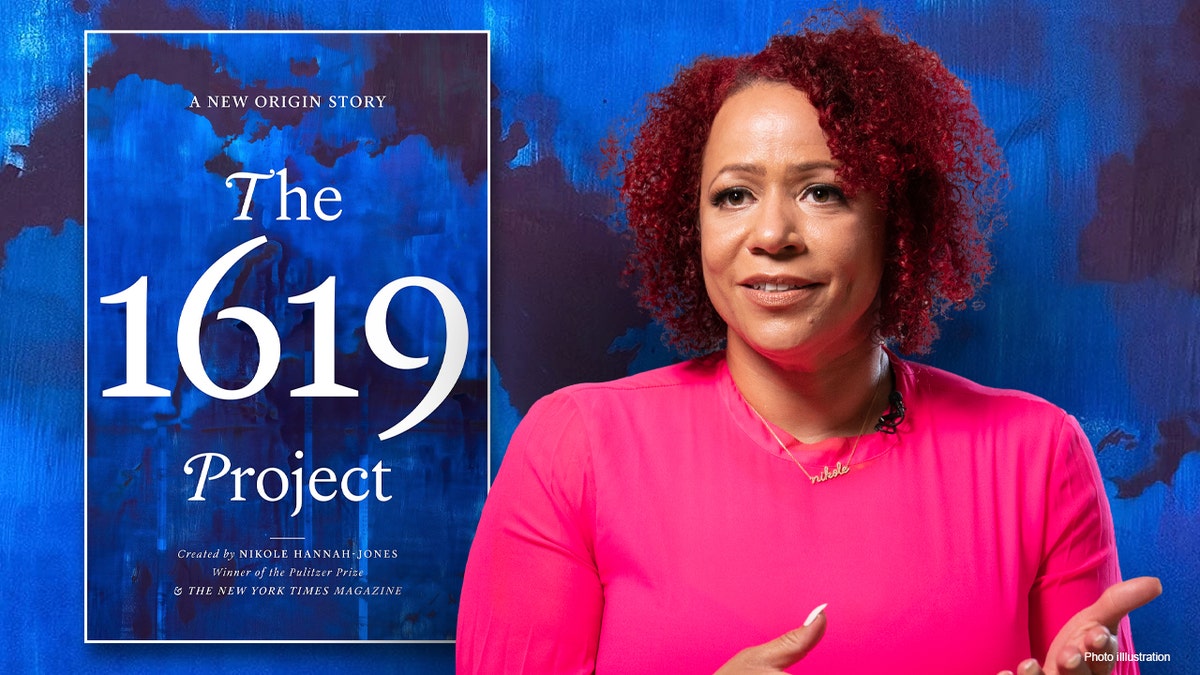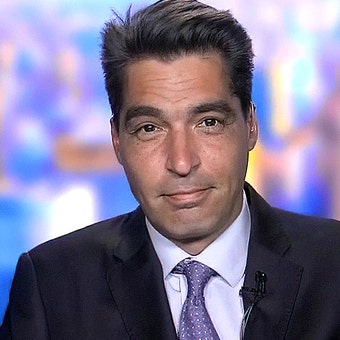Fox News Flash top headlines for September 2
Fox News Flash top headlines are here. Check out what's clicking on Foxnews.com.
The West has two great ancient pillars and exemplars of what it is to be a historian. Herodotus and Thucydides, who wrote in Greece about 2,500 years ago, set standards that are still with us today. Thankfully, neither scribe ever served as the president of the American Historical Association. With their commitment to truth and honesty, neither would have lasted 10 minutes.
The man who is at the helm of the AHA is James Sweet, a professor at the University of Wisconsin-Madison and he is the latest public academic figure to debase himself in a Cultural Revolution style apology for saying perfectly normal things.
So what was his offense? In his August column in AHA’s magazine Perspectives on History he questioned whether ‘teleological presentism" was hurting the discipline.

Conservatives, and critical historians, have generally argued that the 1619 Project distorted the true history of the U.S. with many of Nikole Hannah-Jones’ claims. (AP Photo/John Minchillo)
Teleological presentism is a fancy term, but not a complicated one. It means looking at the past through a lens of current moral, social or political judgments. Sweet criticized historical content, like the 1619 Project, which argues slavery is the central and most important event in American history, as being more concerned with contemporary social and political outcomes than understanding the actual past.
WHY SCHOOLS ADOPTED THE 1619 PROJECT AS A CURRICULUM WHEN IT WAS FULL OF HISTORICAL ERRORS
For his trouble one fellow historian wrote of Sweet that he is "a privileged white man condemning what he sees as everyone else’s obsession with’ identity politics.’" The debate on the AHA Twitter account became so ugly and contentious that comments were disabled. Then came the simping apology.
There are really two questions here, one legitimate, one illegitimate. Let's start with the former. The rational and important question in play here brings us squarely back to Herodotus and Thucydides. Herodotus was first and foremost a storyteller, one of antiquities’ most gifted. He was less interested in accuracy than painting the picture of how people in different parts of the Aegean world and beyond lived; he was almost a proto-sociologist.
CONSERVATIVE WRITER COMBATS WOKE REVISIONISM OF US HISTORY WITH NEW BOOK HONORING AMERICAN ICONS
Thucydides is credited with the invention of scientific history. A great assembler of data and figures, he was a just the facts kind of historian whose tome on the Peloponnesian War is a masterpiece. In a sense, it is these two styles, the narrative and the data driven, that fuels the current debates in the field of history.
This brings us to the illegitimate question. Should Sweet have apologized for his anodyne essay? The answer is absolutely not. But it is the question itself that is doing so much to hurt the study of history.
Does Sweet have a point that historical facts, such as African tribes engaging in the slave trade, are often at odds with the in vogue narrative of American history? Yes. Do his detractors have a point that history should not only be seen as a cold, calculated collection of events but as a fiery cauldron that forged our troubled present? Also, yes. And that friction, that debate is fructive for the discipline.
CLICK HERE TO GET THE OPINION NEWSLETTER
This brings us to the illegitimate question. Should Sweet have apologized for his anodyne essay? The answer is absolutely not. But it is the question itself that is doing so much to hurt the study of history.
The study of history cannot properly function if it is cuffed in the censorious shackles of the permanently offended.
Sweet specifically apologizes to Black historians for creating the impression that "questions posed from absence, grief, memory and resilience matter less than those posed from positions of power." This apology forecloses on any potential debate regarding the past. Those with the most contemporary grievances a priori have the "real" or "accurate" take on the events of human history.
Twice in the opening paragraph of his pathetic apology Sweet refers to the "harm" he caused by publishing his essay. What harm? He made people reading an academic journal about history think about stuff? Stuff they didn’t want to think about? Is that the harm? The study of history cannot properly function if it is cuffed in the censorious shackles of the permanently offended.
CLICK HERE TO GET THE FOX NEWS APP
Perhaps it is another Greek of the 5th century B.C. who can give us the clearest guidance through these dark and testy storms around academia. That would be Socrates, whose method of investigation is the building block of all Western education. He went to his death, by choice, under false charges of corrupting the youth of Athens rather than apologize for speaking the truth.
Nobody is asking James Sweet, or any other leader in the field of history to swig some hemlock and martyr themselves to the Socratic cause. But showing a little bit of backbone would be nice. No more apologies, let’s just get on with the task of understanding the past.










































